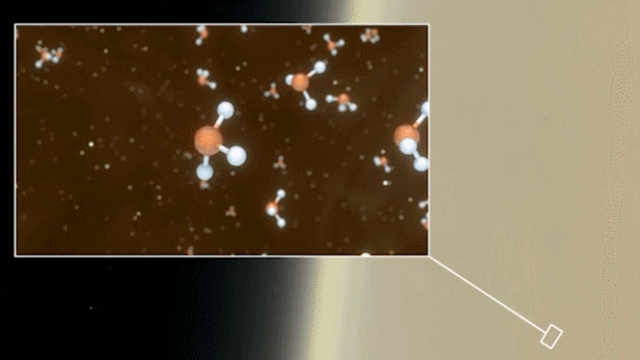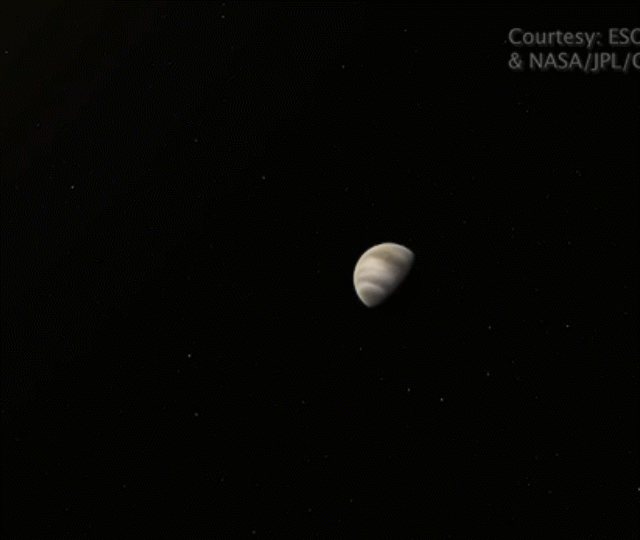
Screenshot from Reuters video
Screenshot from Reuters video
NASA administrator Jim Bridenstine on Monday hailed the discovery of phosphine in the atmosphere of Venus, a gas which on Earth can be attributed to living organisms.
"Life on Venus? The discovery of phosphine, a byproduct of anaerobic biology, is the most significant development yet in building the case for life off Earth," he tweeted.
"About 10 years ago NASA discovered microbial life at 120,000 ft in Earth's upper atmosphere. It's time to prioritize Venus."
Conditions on our planetary neighbor are often described as hellish with daytime temperatures hot enough to melt lead and an atmosphere comprised almost entirely of carbon dioxide.
A team of experts detected traces of phosphine, a flammable gas that on Earth often occurs from the breakdown of organic matter.
They used telescopes in Hawaii and Chile's Atacama Desert to observe Venus' upper cloud deck, around 60 kilometres (45 miles) from the surface.

GIF from the European Organization for Astronomical Research
GIF from the European Organization for Astronomical Research
Writing in Nature Astronomy, the team stressed the presence of phosphine did not prove the presence of life on Venus.
But, as the clouds swirling about its broiling surface are highly acidic and therefore destroy phosphine very quickly, the research did show that something was creating it anew.
The researchers conducted several modelling calculations in a bid to explain the new phosphine production.
They concluded that their research provided evidence "for anomalous and unexplained chemistry" on Venus.
Lead author Jane Greaves, from Cardiff University's School of Physics and Astronomy, told AFP that the presence of phosphine alone was not proof of life on Earth's next-door neighbor.
"I don't think we can say that – even if a planet was abundant in phosphorus, it might lack something else important to life – some other element, or conditions might be too hot, too dry," she said.
Greaves added that it was the first time phosphine had been found on a rocky planet other than Earth.
The bulk of current efforts to look for past extraterrestrial life focus on Mars, which is known to have once contained all the necessary ingredients to support carbon-based organisms.
Venus, which rotates in the opposite direction to Earth and where a day lasts 243 times longer, is a subject of intense interest among astronomers.
It is so close and of such similar size to our home planet that some experts believe it serves as a warning of the dangers of runaway climate change.
Previous studies have unearthed tantalizing clues suggesting Venus has active volcanoes, including signs of recent lava flows.
Source(s): AFP